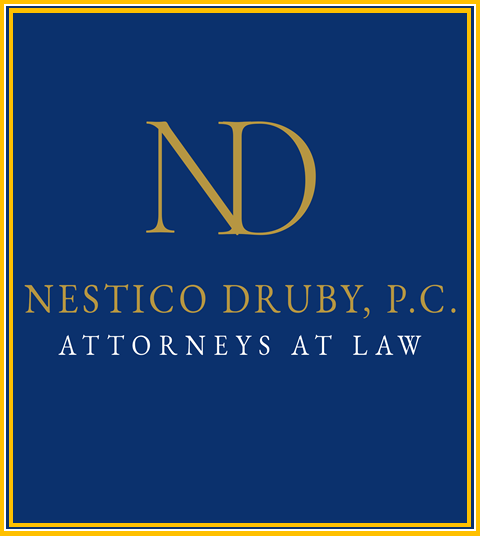Integrity.
Commitment.
Results.
NEWS
Avoid the Pitfalls of Being a Landlord
By Megan Huff, of Nestico Druby, P.C.
Here in Sun Country, many people have decided to invest in residential properties and take on the role of landlord as a way to earn extra money, fund a child's education, or supplement retirement income. Unfortunately, this decision can sometimes lead to major headaches if the landlord does not find a reliable and responsible tenant. In the case of a non-paying tenant, the landlord will spend time and money to evict the delinquent tenant. All the while, the landlord loses out on the rental income. Therefore, thorough pre-screening of potential tenants is critically important.
Once the landlord has decided to evict the tenant, the landlord must serve the tenant with a "notice to quit," unless the tenant has waived this requirement in the residential lease. If the lease is for a year or less or doesn't indicate the length, then the notice to quit must give the tenant 15 days notice to vacate. For a lease of longer than a year, the tenant must be given 30 days notice to vacate. If the tenant has still not vacated when the notice to quit period expires, the landlord should file a landlord-tenant complaint with the local magisterial district judge. A hearing will be held after the complaint is served on the tenant. The judge will award the landlord possession of the property if the judge finds that the tenant has not paid the rent. The judge can also award the landlord a judgment for money damages for the unpaid rent, and for any damages to the property of which the landlord is aware. Unfortunately, this is not the end of the landlord's headaches.
Even though the landlord is awarded possession, the tenant is not evicted immediately following the hearing. The tenant has a right to appeal. If the appeal is filed within ten days, the tenant is not evicted so long as the monthly rent is paid into the court, and another hearing will be held. Keep in mind, that during this time, if the tenant pays rent, it is paid to the court, and administered by the court. If no appeal is filed within ten days, the landlord must request an order granting the landlord possession of the landlord's property. A constable serves the order for possession on the tenant. Again, the tenant is given more time, at least ten additional days, to peaceably vacate the property. It is only after this additional time that the constable will forcibly evict the tenant. If the landlord rents mobile homes, the rules for eviction are even more stringent on the landlord.
Gaining possession of the property does not always relieve the landlord's problems. The tenant may well "trash" the property, and so the landlord will spend more time and money to repair the property and find a new tenant. If the landlord is wise, he or she will have secured a substantial security deposit, which can be used to pay the costs of these repairs. Beware, however, because the landlord tenant law requires that, within 30 days of the end of the tenancy, the landlord either return the security deposit or provide a written explanation of why the tenant is not receiving all or part of the deposit. If the landlord misses this deadline, the landlord could end up paying the tenant a multiple of the security deposit.
The law is in flux about what the landlord can do with the tenant's personal property if it is left at the property. Landlords are no longer permitted to take the tenants' personal property and sell it to recover the unpaid rent. But, landlords run the risk of a tenant claiming damages if the landlord just throws away the tenant's property. Also, landlords may be unable to collect the judgment for unpaid rent if the tenant is judgment proof – in other words, if the tenant has no money or property that can be used to pay the landlord's judgment.
Landlords can avoid the potential pitfalls caused by tenants by having a well written lease. It is also recommended that landlords do background checks on tenants and check the tenants' references. Consultation with an experienced attorney prior to becoming a landlord is also recommended.
All content, material, and information on this website is for general information purposes only. The content, material, and information on this site is not intended as, and shall not be interpreted as, legal advice or legal opinion, nor as an advertisement, solicitation, or invitation to provide legal representation. You shall not rely or act on any of the content, material, or information on this site. Each legal issue must be evaluated on a case by case basis. No attorney-client or other professional relationship of any nature is created by your use of this website. Do not act on or rely on any information on this website. You must consult with a licensed attorney. The use of this website or this e-mail communication with the firm or any attorney or member of the firm does not establish an attorney-client relationship with Nestico Druby, PC or any of its attorneys.

Contact Us!
Copyright©2022 All Rights Reserved.
Web Design by Greatest Hits Websites


